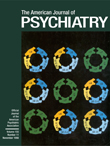Antidepressants in Depressed Patients With Irritable Bowel Syndrome
Ms. A, a 42-year-old Caucasian woman with a 20-year history of irritable bowel syndrome that had been in remission for the last 2 years, sought psychiatric treatment for the symptoms of major depressive disorder (depressed mood, low energy, decreased sleep, poor appetite, and feelings of guilt). She began a course of sertraline, 50 mg q.i.d.; a remission occurred within 3 weeks. During the eighth week, Ms. A developed profuse diarrhea, feelings of abdominal distention, and weakness—consistent with her symptoms during the prior exacerbation of irritable bowel syndrome. After 2 days of suffering from abdominal symptoms, she stopped taking her sertraline; by the next day, she was free of the symptoms of irritable bowel syndrome. Unfortunately, her depressive symptoms recurred within a week. Because of the clinician’s belief that sertraline may have been implicated in Ms. A’s irritable bowel syndrome exacerbation, Ms. A began taking bupropion, a medication that predominantly blocks norepinephrine and dopamine reuptake. She was started on a regimen (100 mg b.i.d.) of the sustained-release preparation and responded within 3 weeks with full remission of her depression. Irritable bowel syndrome had not recurred after 4 months of treatment.
References
Information & Authors
Information
Published In
History
Authors
Metrics & Citations
Metrics
Citations
Export Citations
If you have the appropriate software installed, you can download article citation data to the citation manager of your choice. Simply select your manager software from the list below and click Download.
For more information or tips please see 'Downloading to a citation manager' in the Help menu.
There are no citations for this item
View Options
View options
PDF/ePub
View PDF/ePubGet Access
Login options
Already a subscriber? Access your subscription through your login credentials or your institution for full access to this article.
Personal login Institutional Login Open Athens loginNot a subscriber?
PsychiatryOnline subscription options offer access to the DSM-5-TR® library, books, journals, CME, and patient resources. This all-in-one virtual library provides psychiatrists and mental health professionals with key resources for diagnosis, treatment, research, and professional development.
Need more help? PsychiatryOnline Customer Service may be reached by emailing [email protected] or by calling 800-368-5777 (in the U.S.) or 703-907-7322 (outside the U.S.).

